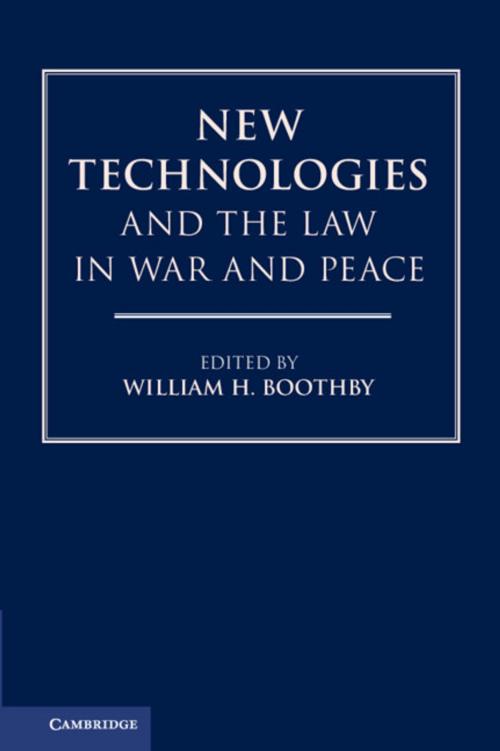New Technologies and the Law in War and Peace
Nonfiction, Reference & Language, Law, International, Social & Cultural Studies, Political Science| Author: | ISBN: | 9781108752879 | |
| Publisher: | Cambridge University Press | Publication: | December 20, 2018 |
| Imprint: | Cambridge University Press | Language: | English |
| Author: | |
| ISBN: | 9781108752879 |
| Publisher: | Cambridge University Press |
| Publication: | December 20, 2018 |
| Imprint: | Cambridge University Press |
| Language: | English |
Policymakers, legislators, scientists, thinkers, military strategists, academics, and all those interested in understanding the future want to know how twenty-first century scientific advance should be regulated in war and peace. This book tries to provide some of the answers. Part I summarises some important elements of the relevant law. In Part II, individual chapters are devoted to cyber capabilities, highly automated and autonomous systems, human enhancement technologies, human degradation techniques, the regulation of nanomaterials, novel naval technologies, outer space, synthetic brain technologies beyond artificial intelligence, and biometrics. The final part of the book notes important synergies that emerge between the different technologies and legal provisions, existing and proposed, assesses notions of convergence and of composition in international law, and provides some concluding remarks. The new technologies, their uses, and their regulation in war and peace are presented to the reader who is invited to draw conclusions.
Policymakers, legislators, scientists, thinkers, military strategists, academics, and all those interested in understanding the future want to know how twenty-first century scientific advance should be regulated in war and peace. This book tries to provide some of the answers. Part I summarises some important elements of the relevant law. In Part II, individual chapters are devoted to cyber capabilities, highly automated and autonomous systems, human enhancement technologies, human degradation techniques, the regulation of nanomaterials, novel naval technologies, outer space, synthetic brain technologies beyond artificial intelligence, and biometrics. The final part of the book notes important synergies that emerge between the different technologies and legal provisions, existing and proposed, assesses notions of convergence and of composition in international law, and provides some concluding remarks. The new technologies, their uses, and their regulation in war and peace are presented to the reader who is invited to draw conclusions.















